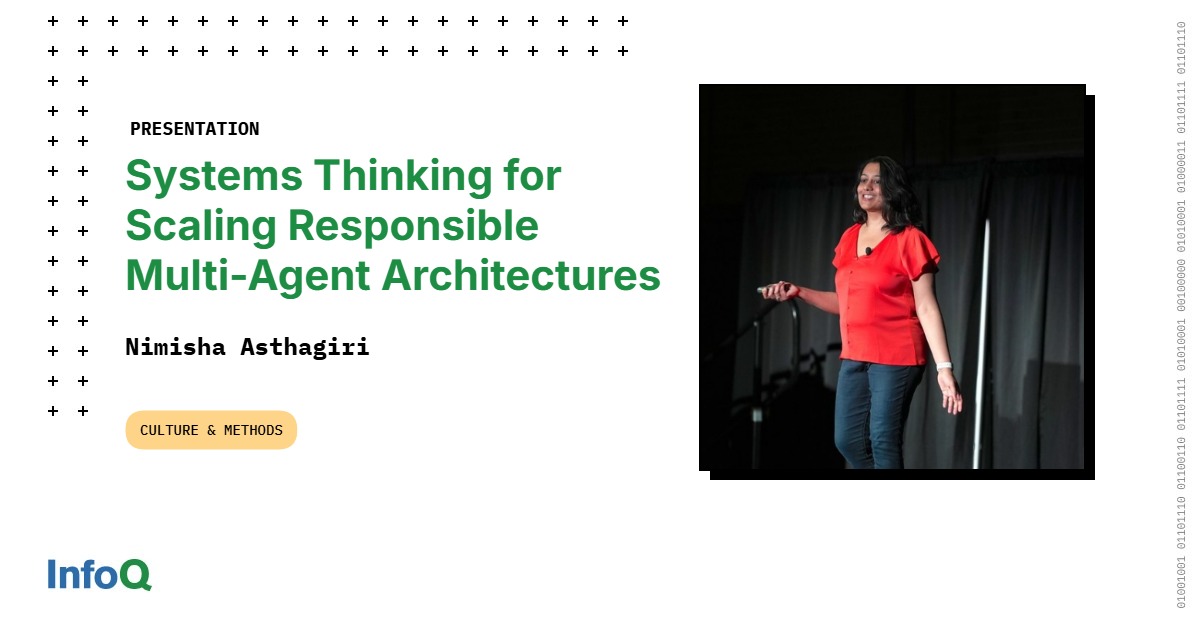
"However, now since the year and being a consultant at Thoughtworks, and I'm seeing a lot of the organizations that we're working with, what I'm seeing is a lot of proof of concepts coming in, and a lot of, let's get things done, and a lot of rapid change as you may have also. There is also this tragedy of the commons. Whose responsibility is it for us to have responsible AI? That is why I'm here today."
"The social media addiction, you might be seeing it in your family, in our kids, and in ourselves. When it started, the platform developers, the platforms that came out, their intention was of course positive for humanity. Have a platform for everyone to be able to connect with each other. You give likes to other statements on the social media platform. You feel rewarded as a human being. Then this continues this cycle and reinforces the usage of their platform."
Multi-agent systems promise major improvements to workflows and business processes, altering how work gets done. Rapid uptake and numerous proofs of concept are driving fast, complex change across organizations. The accelerating complexity produces coordination problems and a tragedy of the commons around who ensures responsible AI. Social media demonstrates how positive intentions, reward loops, and reinforcement can lead to addiction and unintended harmful effects. Systems thinking and complexity theory offer tools to understand emergent behaviors and to design governance, accountability, and intentional practices that align multi-agent systems with human values and reduce systemic harms.
Read at InfoQ
Unable to calculate read time
Collection
[
|
...
]